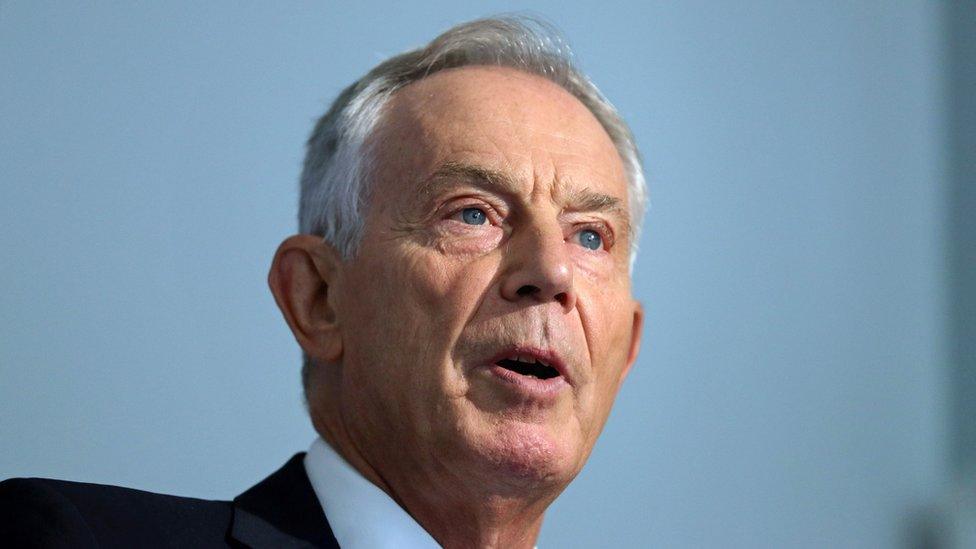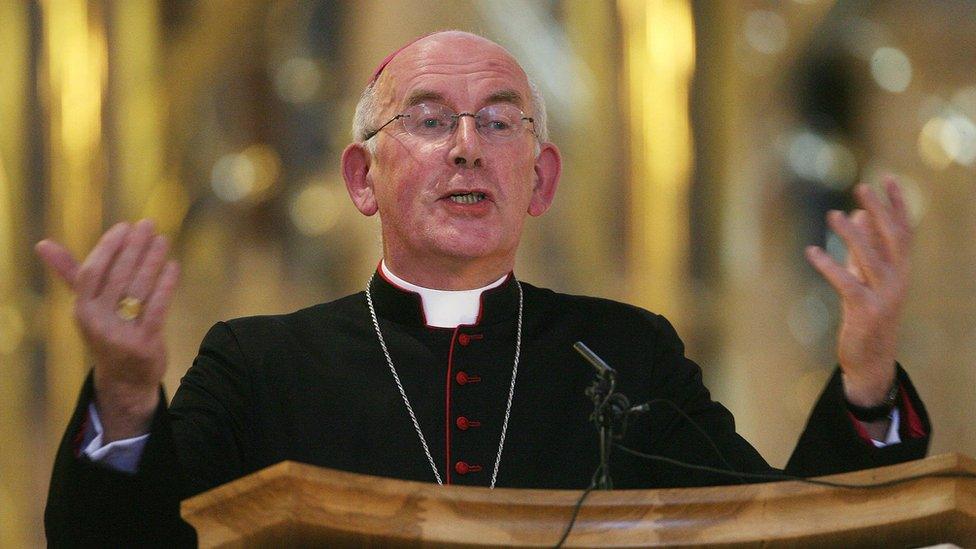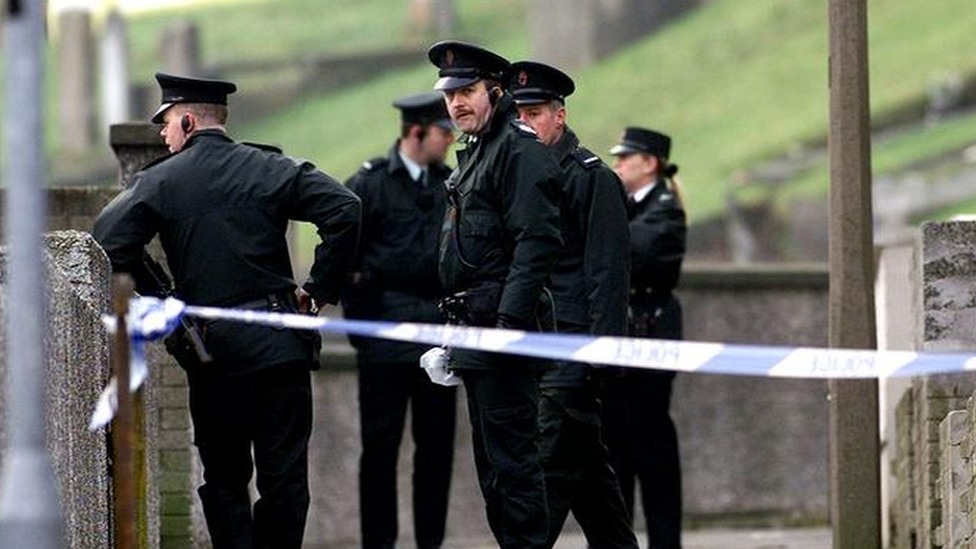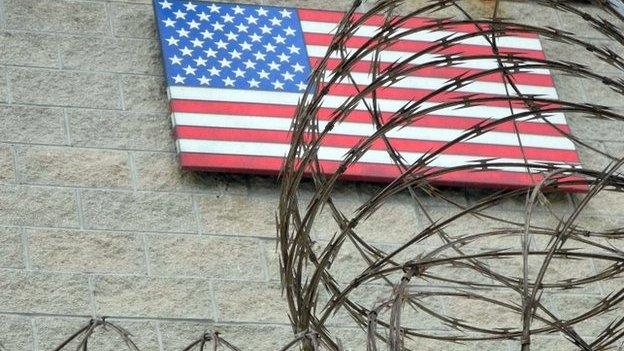Tony Blair likened NI to Middle East in church leader talks
- Published

Tony Blair told church leaders unionists needed to get the message of the GFA
Former Prime Minister Tony Blair viewed Northern Ireland as "similar to the Middle East" with people focusing on "the bad without taking the gains into account".
He made the comments during a meeting in January 2002 with Northern Ireland church leaders.
Confidential minutes of the talks have been released by the National Archive.
During the meeting Mr Blair was also told that Protestant churches "had lost touch with working class communities".
The National Archive's documents include briefing notes prepared by officials for the prime minister and subsequent minutes of the meeting, which took place on 24 January 2002.
That month had seen continuing violence in Northern Ireland, especially in north Belfast, and the murder of Catholic postman Danny McColgan, external.
'Too political'
Mr Blair and the then Secretary of State Dr John Reid met the leaders of the four main churches to talk about a range of issues including the Drumcree parade, sectarianism, the Northern Ireland health service and claims that NI was a "cold place for Protestants".
It was the first time Mr Blair had hosted the leaders at Downing Street.

Cardinal Sean Brady was one of the leaders at the talks
The church leaders at the meeting were Archbishop Robin Eames from the Church of Ireland, the Reverend Alastair Dunlop from the Presbyterian Church, Cardinal Sean Brady from the Roman Catholic Church and Rev Harold Good from the Methodist Church.
Two other delegates - one from the Presbyterian Church and one from the Methodist Church - were also there.
The minutes of the meeting were written by Northern Ireland-born Francis Campbell, then a Downing Street official.
In a briefing to Mr Blair dated 22 January, two days before the breakfast meeting, Mr Campbell said that it would be a way of "encouraging the leaders in their ecumenical dialogue".
"It will give them a boost to face down those in Northern Ireland who have little time for ecumenical activity," he wrote.
Mr Campbell also expressed concerns that as the only Catholic leader, Cardinal Brady "might feel somewhat isolated if the discussion becomes too political".
"Brady is a southerner and might be intimidated by the experience of meeting the British PM in Number 10," Mr Campbell continued.
The briefing for Mr Blair also noted that health was "a subject of acute controversy in Northern Ireland".
Mr Campbell wrote a subsequent account of the meeting for a Northern Ireland Office official, Kirsten McFarlane, on 25 January.
Lost touch
According to that account, Archbishop Eames told Mr Blair that the benefits of the Good Friday Agreement of 1998 needed to be explained "to ordinary people".
"Alastair Dunlop echoed that," the document said.
"The problem was that the churches had lost touch with working class communities.
"The churches, in particular the Protestant churches, needed to find ways of addressing the loss of confidence in the GFA and they needed government support to achieve that."
In response, Mr Blair said: "The unionist community needed to get the main message of the GFA - that Northern Ireland was in the UK on the basis of consent and subject to the will of the majority.
"The notions of constant concessions to one side had to be challenged.
"Northern Ireland was similar to the Middle East - people focused on the bad without taking the gains into account," he continued.
Archbishop Eames then raised the disputed Drumcree parade.
"He said that unless it was settled it could derail the entire peace process."

Police in Northern Ireland were struggling to deal with pipe bombs
When matters moved on to policing, Cardinal Brady told the prime minister that "the perception within the Catholic community was that the police were interested in security crime and not focused on tackling pipe bombers or everyday criminality".
During subsequent discussions, according to Mr Campbell's minutes, Dr Reid said the police faced "a real difficulty" on pipe bombings.
"The perpetrators were often teenagers with little central organisation," he added.
"The UDA was not like PIRA (Provisional IRA) and tackling it without internment was very difficult."
According the minutes Cardinal Brady also raised conditions for prisoners at Guantanamo Bay in Cuba, the military prison established by the USA after the attacks of September 11 2001.
Mr Blair assured him that British prisoners were "being well treated" but said that information from them was "vital if further attacks were to be averted".
The declassified government papers released by the National Archives are mainly from 2001 and 2002, but also include some documents from the 1960s, 1970s and 1980s.
Related topics
- Published14 January 2015
